Boost Your Gut Health with Fiber-Rich Foods: A Guide to Digestive Wellness
Are you tired of feeling bloated, sluggish, and uncomfortable after meals? It’s time to give your gut the love and attention it deserves by incorporating more fiber-rich foods into your diet. In this comprehensive guide to digestive wellness, we’ll explore the many benefits of fiber for gut health and share delicious recipes and tips to help you boost your digestive system naturally. Say goodbye to tummy troubles and hello to a happier, healthier you with the power of fiber!

Introduction to Gut Health and Fiber
Gut health has been a hot topic in the wellness world recently, with more and more evidence showing just how important it is for our overall well-being. The term “gut health” refers to the balance of microorganisms that live in our digestive system and the functions they perform. These microorganisms, often referred to as the gut microbiome, play a crucial role in maintaining both our physical and mental health.
One simple yet effective way to improve your gut health is by consuming fiber-rich foods. Fiber, also known as roughage or bulk, cannot be digested by our bodies but plays a vital role in keeping our digestive system running smoothly.
Before we dive into the benefits of fiber for gut health, let’s first understand what fiber is. There are two types of dietary fiber: soluble and insoluble.
Soluble fiber dissolves in water and forms a gel-like substance that helps slow down digestion, while insoluble fiber adds bulk to stools and helps food move through the digestive tract.
Nowadays, most people consume low amounts of dietary fiber due to an increased intake of processed foods. A diet high in processed foods can lead to an imbalance in the gut microbiome and various digestive issues such as constipation, bloating, diarrhea, and even conditions like irritable bowel syndrome (IBS).
So why is fiber so crucial for gut health? For starters, it acts as a prebiotic – a type of non-digestible food that promotes the growth of beneficial bacteria in the gut microbiome. Research has shown that having a diverse range of gut bacteria is associated with better overall health.
Fiber also helps keep things moving through our digestive system at an optimal pace. Insoluble fibers act as nature’s broom by adding bulk to stools and aiding regular bowel movements.
Moreover, soluble fibers help maintain healthy blood sugar levels by slowing down carbohydrate absorption into the bloodstream. This can benefit people with diabetes or those trying to manage their blood sugar levels.
In addition to these benefits, fiber also helps us feel fuller for longer and can aid in weight management by promoting satiety and preventing overeating.
A diet rich in fiber not only supports good gut health but also has numerous other health benefits. Including a variety of high-fiber foods such as fruits, vegetables, legumes, whole grains, nuts, and seeds into your daily meals is crucial for maintaining optimal digestive wellness. In the next sections of this guide, we will explore some delicious and easy ways to incorporate fiber-rich foods into your diet.
Meanwhile do follow this link fiber benefits
Introduction to Gut Health and Fiber
The gut, also known as the digestive system, plays a crucial role in maintaining overall health and wellness. It is responsible for breaking down food, absorbing nutrients, and eliminating waste from the body. However, when our gut health is compromised, it can lead to various digestive disorders such as constipation, diarrhea, bloating, and even more severe conditions like irritable bowel syndrome (IBS) or inflammatory bowel disease (IBD).
One of the most important aspects of maintaining a healthy gut is consuming an adequate amount of fiber in our diets. Fiber is a type of carbohydrate that cannot be digested by the human body. Instead, it passes through the digestive system intact and provides many benefits for our gut health.
Types of Fiber
There are two types of fiber – soluble and insoluble. Soluble fiber dissolves in water to form a gel-like substance in the gut. This type of fiber helps slow down digestion and keeps us feeling full for longer periods. Insoluble fiber does not dissolve in water but rather adds bulk to stools, making them easier to pass. Both types of fiber play essential roles in promoting good gut health.
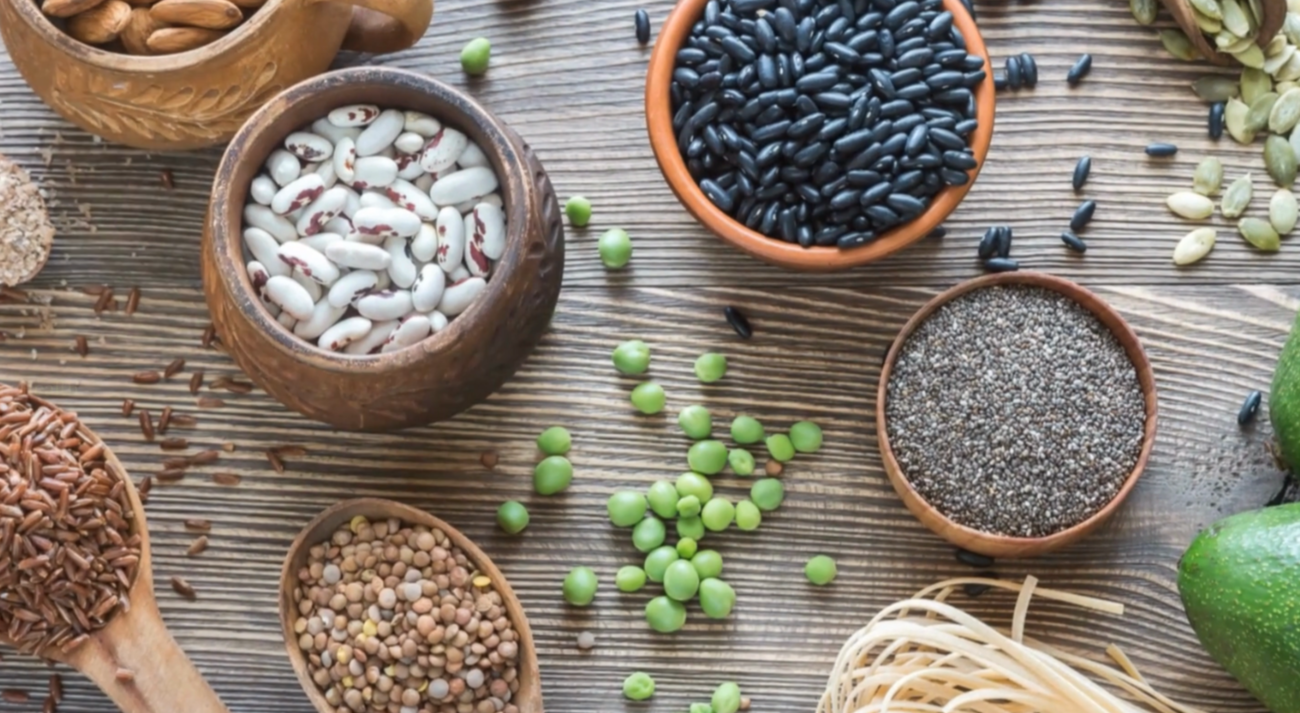
Benefits of Fiber for Gut Health
Fiber offers numerous benefits for our digestive system, including:
1) Promotes regular bowel movements: As mentioned earlier,soluble fiber adds bulk to stool while insoluble fiber stimulates peristalsis – the movement that pushes food through your intestines – both contributing towards smooth bowel movements.
2) Maintains balanced bacteria levels: Our guts contain trillions of bacteria that aid in digestion and boost immune function. Soluble fibers act as prebiotics – nourishment for these good bacteria – while insoluble fibers help maintain proper pH levels in the colon where most bacterial growth occurs.
3) Helps prevent constipation: Insufficient intake of dietary fiber can lead to hard stools that are difficult to pass,resulting in constipation. Consuming enough fiber can soften stools and prevent constipation.
4) Reduces risk of colon cancer: Fiber helps eliminate waste efficiently from the body, reducing the time that potentially harmful substances come into contact with the intestinal walls.
5) Regulates blood sugar levels: Adding fiber to meals slows down digestion, preventing spikes in blood sugar levels after a meal.
Conclusion
Incorporating fiber-rich foods into our diet is essential for maintaining a healthy gut and overall wellness. Aim to consume at least 25-30 grams of fiber per day from whole grains, fruits, vegetables, legumes, seeds, and nuts. Always remember to increase your fiber intake gradually to avoid digestive discomfort.Balancing soluble and insoluble fibers is the key – chowing down on large quantities of either type may cause undesirable effects. So choose a balanced plate every time you sit down for a meal!
What is Fiber and Why is it Important for Gut Health?
Fiber refers to a type of carbohydrate found in plant-based foods such as fruits, vegetables, whole grains, legumes, nuts, and seeds. Unlike other carbohydrates, fiber cannot be broken down by the body into simple sugars for energy.
Instead, it travels through the digestive tract largely intact and plays a crucial role in maintaining good gut health.
There are two main types of fiber – soluble and insoluble. Soluble fiber dissolves in water and forms a gel-like substance in the digestive tract. It can be found in foods like oats, beans, apples, and citrus fruits.
On the other hand, insoluble fiber does not dissolve in water and helps to add bulk to stools.
It can be found in whole grains, vegetables like celery and carrots, as well as nuts. So why is fiber important for gut health? Firstly, consuming adequate amounts of both soluble and insoluble fiber is essential for maintaining regular bowel movements and preventing constipation.
This is because these fibers add bulk to stools, making them easier to pass through the colon. Moreover, studies have shown that high-fiber diets can also reduce the risk of developing certain chronic diseases such as heart disease and type 2 diabetes.
This could be due to its ability to regulate blood sugar levels by slowing down digestion.
But perhaps one of the most vital roles that fiber plays in promoting gut health is its ability to nourish our beneficial gut bacteria or microbiome.
Our gut contains trillions of microorganisms that help with digestion and play a key role in immune function.
These bacteria feed on indigestible carbohydrates like fiber which fuel their growth while also producing short-chain fatty acids that help keep our intestinal lining healthy.
In addition to nourishing gut bacteria directly through fermentation processes within the intestine, high-fiber diets have also been linked with increased diversity of microbial species within the gut.
Fiber is an essential nutrient for maintaining good gut health.
It not only helps with regular bowel movements but also plays a crucial role in preventing chronic diseases and promoting the growth of healthy gut bacteria. Incorporating fiber-rich foods into your diet, such as fruits, vegetables, whole grains, and legumes, can go a long way in supporting your digestive wellness.
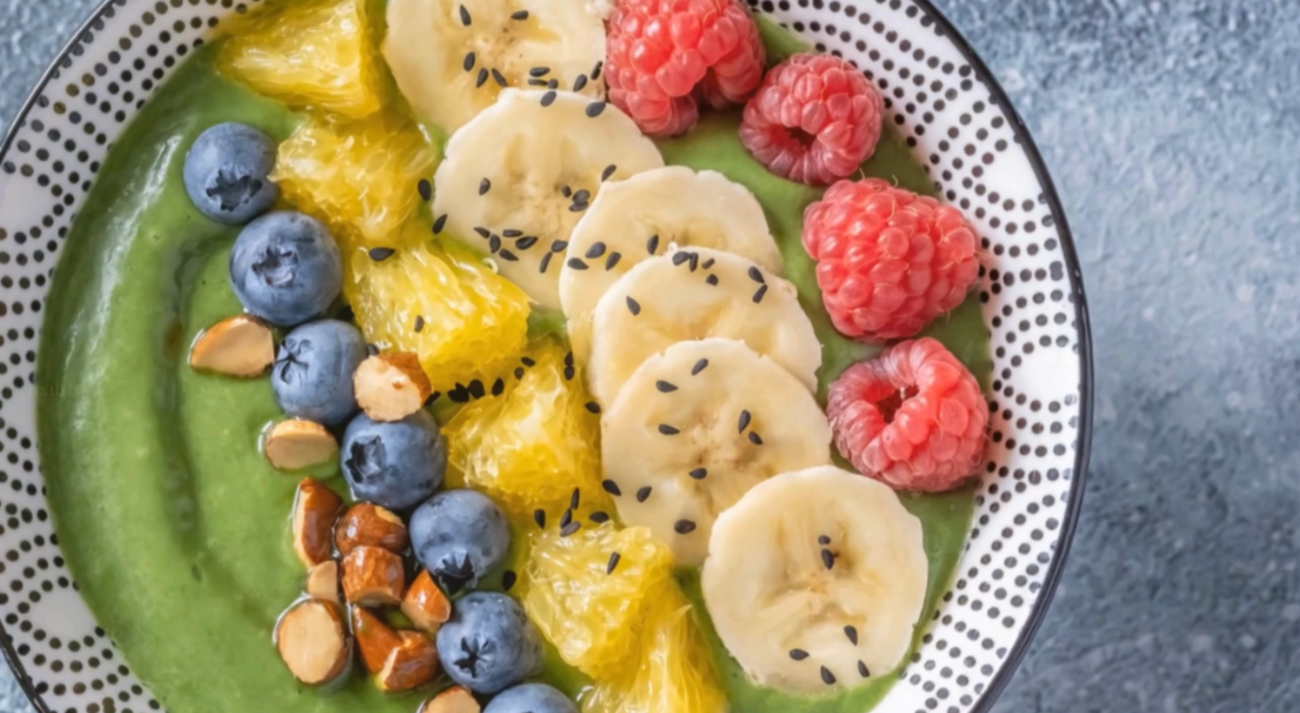
Types of Fiber: Soluble vs. Insoluble
Fiber is a vital component of our diet that plays a crucial role in promoting gut health and overall digestive wellness. It is found in plant-based foods such as fruits, vegetables, whole grains, legumes, nuts, and seeds. There are two main types of fiber: soluble and insoluble. Both have unique properties and benefits for our digestive system.
Soluble fiber dissolves in water and forms a gel-like substance in the intestines. This type of fiber helps slow down digestion, which can make you feel fuller for longer periods. It also has prebiotic properties, meaning it serves as food for the good bacteria in your gut. The fermentation process of soluble fiber produces short-chain fatty acids that provide energy to the cells lining the colon, promoting a healthy intestinal environment.
Some examples of foods rich in soluble fiber include oats, apples, citrus fruits, carrots, sweet potatoes, beans, peas, and lentils. Including these foods in your diet can help regulate blood sugar levels by slowing down the absorption of glucose into the bloodstream. Soluble fiber also helps lower cholesterol levels by binding to bile acids that are responsible for cholesterol reabsorption.
On the other hand, insoluble fiber does not dissolve in water but instead adds bulk to stool while passing through the digestive tract. This promotes regular bowel movements and prevents constipation by helping waste products move smoothly through the intestines.
Insoluble fiber can be found mainly in whole grains like brown rice and quinoa; vegetables such as broccoli and dark leafy greens; nuts like almonds and walnuts; and fruits with edible skin such as strawberries and grapes.
Since both types of fiber serve different functions within our bodies’ digestive processes, it is essential to incorporate them into our daily meals for optimal gut health.
It is recommended that adults consume between 25-30 grams of total dietary fiber per day from a variety of sources. However, it’s best to increase fiber intake gradually and drink plenty of water to avoid digestive discomfort.
Both soluble and insoluble fibers are essential for good gut health.
While soluble fiber promotes a healthy gut environment and helps with blood sugar and cholesterol regulation, insoluble fiber supports regular bowel movements and prevents constipation.
By including a variety of plant-based foods high in both types of fiber in our diet, we can improve our digestion and overall well-being.
The Healing Powers of Fiber: Benefits for Digestive Wellness
Fiber has long been known as an essential nutrient for maintaining a healthy digestive system.
It is the indigestible part of plant-based foods that helps to keep our gut working smoothly and efficiently.
While most people associate fiber with keeping us regular, there are numerous other benefits that make it a crucial component in promoting overall digestive wellness.
1. Promotes Regularity: One of the primary roles of fiber is to aid in bowel movements by adding bulk to stool and increasing its movement through the digestive tract. This prevents constipation and promotes regularity, which is vital for maintaining a healthy gut.
2. Prevents Diverticular Disease: Diverticula are small pouches that can form along the walls of the colon due to weak spots in the intestinal lining. These pouches can become inflamed and infected, leading to diverticulitis – a painful condition that affects the digestive system. A diet high in fiber can help prevent this disease by keeping stools soft and preventing strain during bowel movements.
3. Reduces Risk of Colon Cancer: Fiber plays a crucial role in reducing inflammation and promoting healthy gut bacteria, both of which have been linked to lower rates of colorectal cancer.
4. Maintains Blood Sugar Levels: Soluble fiber found in oats, legumes, and certain fruits can slow down digestion and absorption of sugar into the bloodstream, thus preventing blood sugar spikes after meals. This is especially beneficial for individuals with diabetes or those at risk for developing it.
5. Lowers Cholesterol Levels: The soluble fiber found in foods like beans, apples, citrus fruits, and flaxseeds has been shown to reduce LDL (bad) cholesterol levels by binding to bile acids in the intestine and eliminating them from the body.
6. Increases Satiety: Foods rich in fiber take longer to chew and digest than their low-fiber counterparts, leading to a feeling of fullness for longer periods after meals. This can help prevent overeating and promote weight management.
7. Alleviates Irritable Bowel Syndrome (IBS) Symptoms: For those with IBS, fiber can offer significant relief from symptoms such as gas, bloating, and constipation. The key is to choose soluble fibers like oat bran, psyllium husk, and chia seeds that are known to soothe the digestive tract.
8. Supports a Healthy Microbiome: The gut microbiome plays a critical role in digestion, immune function, and overall health. High-fiber foods act as prebiotics – nourishing the beneficial bacteria in our gut and promoting a diverse microbiome.
Incorporating fiber-rich foods into your diet is one of the easiest ways to promote digestive wellness. Aim for at least 25-30 grams of fiber per day from sources such as whole grains, fruits, vegetables, legumes, nuts and seeds for optimal health benefits. As always, be sure to increase your fiber intake gradually to avoid digestive discomfort and drink plenty of water throughout the day to help
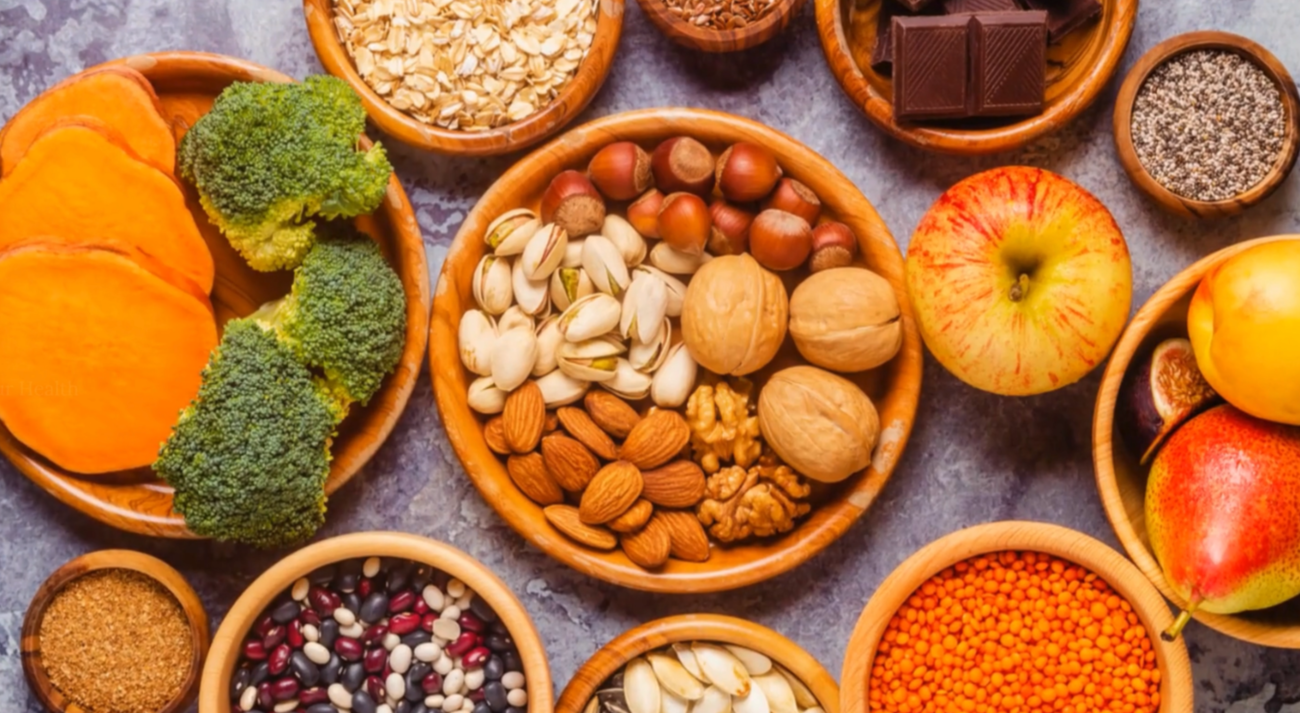
Best Sources of Fiber for a Healthy Gut
Fiber is an essential nutrient for a healthy gut and digestive system. It helps to regulate bowel movements, promotes the growth of beneficial bacteria, and can even lower the risk of chronic diseases such as diabetes, heart disease, and colon cancer. But what are the best sources of fiber to incorporate into your diet? In this section, we will discuss some of the top sources of fiber for a healthy gut.
1) Whole Grains
Whole grains are one of the best sources of fiber as they contain all three parts of the grain – bran, germ, and endosperm. These include foods like whole wheat bread, brown rice, oats, quinoa, and barley. They provide both soluble and insoluble fiber that can help regulate digestion and promote a healthy gut microbiome.
2) Fruits
Fruits are not only delicious but also rich in fiber. Some fruits that are high in fiber content include apples with skin on, pears, berries (raspberries, blackberries), avocados, bananas (unripe), and kiwi fruit. Soluble fibers found in these fruits can help ease constipation by absorbing water in your intestines.
3) Vegetables
As with fruits, vegetables also offer plenty of benefits when it comes to dietary fiber for gut health. Dark leafy greens like kale or spinach; cruciferous vegetables such as broccoli or cauliflower; root vegetables like sweet potatoes or carrots; and legumes like chickpeas or lentils are all excellent sources of dietary fiber.
4) Nuts and Seeds
Another great way to increase your intake of dietary fiber is through nuts and seeds such as almonds, cashews,sunflower seeds,and chia seeds. These provide both soluble fibers which promote satiety while slowly absorbed carbohydrates provide steady energy release over time.
5) Beans/Legumes
Beans/lentils/legumes being good source oof protein have added benefit of being rich in fiber (about 8 grams in a cup). Production of gas and bloating from bean can be avoided by eveny adding them to your diet gradually.
These could include kidney beans, chickpeas, green beans, and lentils. They are excellent sources of both soluble and insoluble fiber that can help regulate digestion and promote healthy gut bacteria.
Incorporating these high-fiber foods into your daily meals is an easy way to maintain a healthy gut. It is recommended to aim for at least 25-30 grams of dietary fiber per day for adults to support optimal health.
Make sure to drink plenty of water when increasing your fiber intake, as this will aid in the digestive process. By incorporating these fiber-rich foods into your diet, you can boost your digestive wellness and overall health!
Incorporating More Fiber into Your Diet
Fiber is an important nutrient that forms the structure of plants and cannot be digested by the human body.
However, it plays a crucial role in maintaining digestive health and overall well-being.
Most people don’t consume enough fiber in their daily diets, leading to various digestive issues such as constipation, bloating, and even more serious conditions like diverticulitis and colorectal cancer.
To boost your gut health with fiber-rich foods, it’s essential to understand the two types of fiber: soluble and insoluble.
Soluble fiber dissolves in water and helps to slow down digestion, regulate blood sugar levels, and lower cholesterol.
Insoluble fiber doesn’t dissolve in water but adds bulk to stool, promoting regular bowel movements and preventing constipation.
Here are some simple yet effective ways to incorporate more fiber into your diet:
1. Start Your Day with High-Fiber Breakfast Foods
One easy way to increase your daily fiber intake is by choosing breakfast options rich in whole grains or adding a variety of fruits or vegetables to your meal.
Oatmeal, bran cereal, whole wheat toast with avocado spread or topped with sliced bananas are all excellent sources of soluble fiber.
You can also try incorporating berries or spinach into your morning smoothie for a boost of insoluble fiber.
2. Snack on Fiber-Rich Foods
Instead of reaching for processed snacks such as chips or cookies when hunger strikes between meals, opt for healthier options like fresh fruits (apples, pears), raw veggies (carrots sticks, bell pepper slices), or a small portion of mixed nuts. These snacks not only provide a satisfying crunch but also add extra grams of dietary fiber.
3. Choose Whole Grains over Refined Grains
Switching from refined grains (white bread/pasta) to whole-grain alternatives (whole-wheat bread/pasta) increases your daily intake of dietary fiber, as whole grains retain more nutrients and fiber than their refined counterparts. You can also try incorporating other whole grains such as quinoa, barley, brown rice, or bulgur into your meals.
4. Add Beans and Legumes to Your Diet
Beans and legumes are an excellent natural source of both soluble and insoluble fibers. Incorporating them into your diet at least twice a week not only adds variety but also provides essential nutrients like protein and minerals. Try adding chickpeas to salads or making a hearty vegetable soup with lentils for a nourishing meal.
With these simple tips in mind, you can easily incorporate more fiber-rich foods into your diet and start reaping the benefits of improved gut health. Remember to increase your fiber intake gradually to avoid any digestive discomforts. And don’t forget to stay hydrated by drinking plenty of water throughout the day as fiber absorbs water from the digestive tract.
-Meal Ideas and Recipes-
Incorporating fiber-rich foods into your diet doesn’t have to be bland or boring. In fact, there are plenty of delicious meal ideas and recipes you can try that will not only boost your gut health but also please your taste buds.
Breakfast:
Start your day off right with a high-fiber breakfast. Some options include oatmeal topped with fresh fruits and nuts, a veggie-packed omelette, or whole grain toast with avocado spread and poached eggs. Smoothies are also a great way to get in some fiber; simply blend together frozen fruit, spinach, chia seeds, and almond milk for a quick and nutritious breakfast option.
Lunch:
For lunch, opt for a hearty salad filled with fiber-rich greens such as spinach, kale, or arugula. Top it off with protein sources like grilled chicken or tofu, along with other colorful veggies like carrots, bell peppers, and beets. If you prefer something warm on colder days, try making a vegetable soup filled with beans and lentils for a satisfying meal.
Snacks:
Instead of reaching for processed snacks that are low in fiber and high in sugar and fat, choose healthier options such as raw veggies with hummus or homemade trail mix made with nuts (such as almonds or cashews), dried cranberries or apricots, and whole grain cereal. Apples paired with nut butter make for another tasty snack option.
Dinner:
When it comes to dinner time, there are endless possibilities when it comes to incorporating fiber-rich foods. Use quinoa or brown rice as the base of your meal instead of white rice or pasta. For protein options besides meat (which is typically low in fiber), consider adding tempeh (fermented soybean product) or legumes such as chickpeas into stir-fry dishes or chili recipes.
Dessert:
Yes, even desserts can be made fiber-rich! Try making homemade oatmeal cookies or a fruit crisp with whole grain oats and topped with fresh berries for a sweet treat that won’t disrupt your gut health.
Adding more fiber to your diet doesn’t have to be difficult or unenjoyable. With these meal ideas and recipes, you can make tasty dishes that will help support your digestive wellness. Experiment with different ingredients and find what works best for you and your gut health needs. Remember to always stay hydrated when increasing your fiber intake, and consult with a healthcare professional if you have any concerns or questions about incorporating more fiber into your diet.
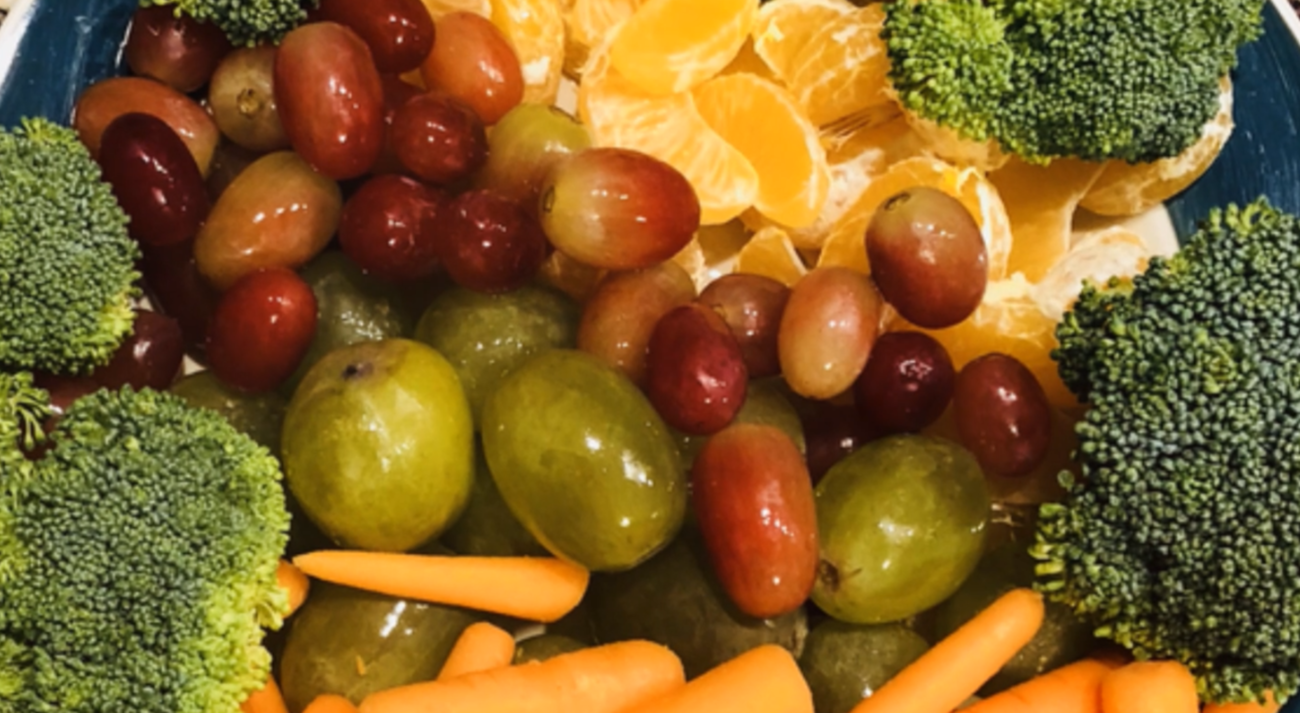
Shopping tips for high-fiber foods
When it comes to incorporating high-fiber foods into your diet, there are a few shopping tips that can help you make the best choices for your gut health. Here are some key things to keep in mind when navigating the grocery store aisles:
1. Look for whole grains: When it comes to choosing breads, pastas, and other grain-based products, opt for whole grain options rather than refined ones. These contain higher levels of fiber and other important nutrients that can help promote good digestive health.
2. Read labels carefully: It’s important to read product labels when shopping for high-fiber foods. Look for items that have at least 3 grams of fiber per serving or more. This will ensure that you’re getting a significant amount of fiber from your food choices.
3. Choose fresh over processed: While packaged foods like granola bars and crackers may boast high-fiber content on their labels, these often come with added sugars and preservatives that can counteract the benefits of the fiber. Instead, try to choose fresh fruits and vegetables as much as possible.
4. Stock up on legumes: Legumes such as beans, lentils, and chickpeas are fantastic sources of both soluble and insoluble fiber. They’re budget-friendly, versatile, and easy to incorporate into meals like soups, stews, salads, and dips.
5. Don’t forget about frozen options: Frozen fruits and vegetables are great alternatives when fresh produce isn’t available or is too expensive. These retain their nutritional value during the freezing process and can be just as beneficial in terms of fiber content.
6. Consider supplementing with psyllium husk: Psyllium husk is a type of soluble fiber that has been shown to improve digestion and relieve constipation in individuals with IBS (irritable bowel syndrome). You can find this in powder form or capsules at most health food stores.
7. Be mindful of added sugars: While certain foods like yogurt and breakfast cereals can be good sources of fiber, it’s important to check the ingredients list for added sugars. These can contribute to inflammation and digestive issues, so it’s best to choose options with no or minimal amounts of added sugar.
By following these shopping tips, you can ensure that your diet is filled with high-quality, fiber-rich foods that will promote a healthy gut and overall digestive wellness. Remember to always aim for a variety of fruits, vegetables, whole grains, and legumes in your shopping cart for optimal gut health.
Shopping for high-fiber foods can often seem overwhelming or confusing. With so many products claiming to be “high-fiber” or “fiber-enriched,” it can be challenging to know which ones are actually good for you and your digestive health. To help you navigate the grocery store aisles, here are some essential shopping tips for high-fiber foods:
1. Look for whole grains: When choosing bread, pasta, rice, or other grain-based products, opt for the whole-grain varieties. Whole grains contain more fiber than their refined counterparts and also provide essential vitamins and minerals.
2. Check the ingredients list: Don’t just rely on front-of-package claims of being “high-fiber.” Instead, make sure to read the ingredient list on food labels. Look for ingredients such as whole wheat, oatmeal, brown rice, quinoa, and flaxseed to ensure that the product is a good source of fiber.
3. Choose fresh fruits and vegetables: Fruits and vegetables are naturally high in fiber and should be a staple in any well-rounded diet. When possible, choose fresh produce over canned or frozen options, as they tend to have higher fiber content.
4. Mix it up with legumes: Legumes like beans, lentils, peas,and chickpeas are excellent sources of both soluble and insoluble fiber. They are versatile ingredients that can be added to soups,stews,salads or used as a meat substitute in various recipes.
5. Beware of added sugars: Many packaged high-fiber foods may also have added sugars to improve taste or texture.This counteracts the beneficial effects of fiber on digestion.Look out for terms like corn syrup,dextrose,sucrose,maltose,invert sugar,and cane juice on ingredient lists.These added sugars will do more harm than good when it comes to gut health.
6.. Consider alternative flours: If you’re looking to add more fiber to your diet, consider swapping out regular flour for alternatives like almond or coconut flour. These flours are not only high in fiber but also contain beneficial nutrients for digestion.
7. Don’t forget about seeds and nuts: Chia seeds, flaxseeds, almonds, and walnuts are all excellent sources of fiber.These can be sprinkled on top of yogurt, oatmeal, or added to smoothies for a quick and easy way to boost your daily fiber intake.
By following these shopping tips for high-fiber foods,you can make better choices at the grocery store and ensure that you are getting enough fiber in your diet. Remember to check ingredient labels carefully and mix up your options with a variety of whole grains, fruits and vegetables,and legumes to keep your gut healthy and happy.
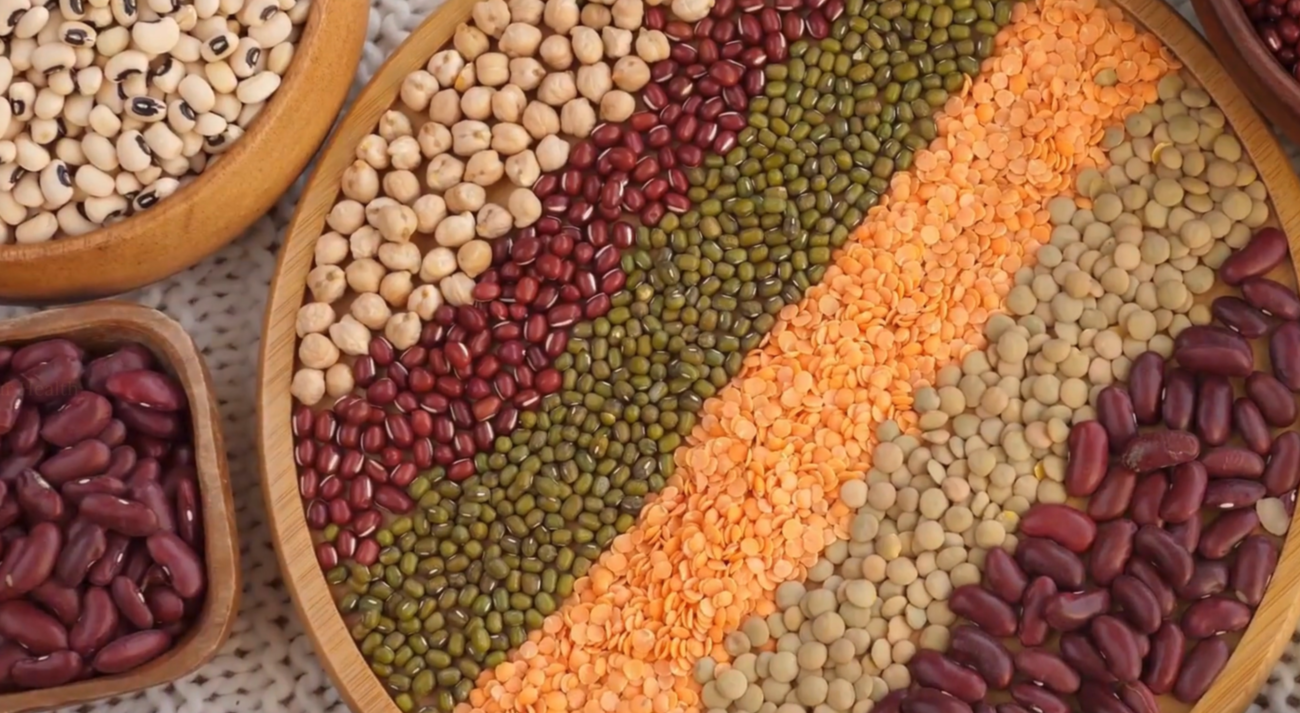
Adding fiber supplements or powders to your routine
Fiber is an essential nutrient for maintaining good gut health. However, it can be challenging to get enough fiber in our diets through whole foods alone. This is where fiber supplements or powders come in handy. They are a convenient and easy way to increase your daily fiber intake and support your digestive wellness.
There are many different types of fiber supplements and powders available on the market today. Some of the most common include psyllium husk, glucomannan, acacia fiber, and inulin. These supplements come in various forms such as capsules, tablets, powder mixes, and even gummies.
When choosing a fiber supplement or powder, it’s crucial to look at the ingredient list carefully. You want to make sure that the supplement you choose contains mostly natural ingredients with minimal added sugars or artificial sweeteners. Each type of supplement may also have specific benefits for different digestive issues, so it’s best to do some research or consult with a healthcare professional before making a purchase.
Once you’ve selected your preferred form of supplementation, it’s essential to start slowly and gradually increase your intake over time. Suddenly introducing too much fiber into your diet can cause uncomfortable side effects like gas and bloating.
It’s recommended to start with half the recommended dosage and then slowly work your way up until you reach the full dose. It’s also vital that you continue to consume plenty of water throughout the day when taking any form of fiber supplementation.
Fiber absorbs water in the digestive tract, helping food move more efficiently through our bodies; however, if we’re not hydrated enough, it could lead to constipation instead. Another benefit of adding fiber supplements or powders into your routine is their versatility.
You can mix them into smoothies or shakes for an added boost of nutrients without changing their taste significantly. You can also sprinkle them onto yogurt or oatmeal for a quick and easy breakfast option. One thing worth noting is that fiber supplements and powders should not be used as a replacement for whole foods.
While they can help increase your daily intake, it’s essential to continue consuming a balanced diet rich in fruits, vegetables, and whole grains. Adding fiber supplements or powders to your routine can be an effective way to boost your gut health. They provide convenience and versatility while increasing your daily fiber intake. Just remember always to start slow, stay hydrated, and continue to prioritize whole foods in your diet for optimal digestive wellness.
Common Mis
Common Misconceptions About Fiber-Rich Foods and Gut Health
As more and more people become aware of the importance of gut health, the popularity of fiber-rich foods has steadily increased. But with this increase in popularity comes a slew of misconceptions and misinformation about how these foods actually affect our digestive wellness. In this section, we will debunk some common myths surrounding fiber-rich foods and their impact on gut health.
Myth #1: All fiber is the same
This is one of the most common misconceptions about fiber-rich foods. In reality, there are two different types of dietary fiber – soluble and insoluble. Soluble fiber dissolves in water and forms a gel-like substance in your digestive tract, which helps to slow down digestion and promote healthy bowel movements. Insoluble fiber does not dissolve in water but adds bulk to your stool, aiding in regularity and preventing constipation. It’s important to consume both types of fiber for optimal gut health.
Myth #2: Consuming too much fiber can be harmful
While it may be true that consuming excessive amounts of any food can have negative effects on your digestion, it is highly unlikely that you will consume too much fiber from whole food sources. Whole foods naturally contain moderate amounts of dietary fiber without overloading you with large doses at once. However, high-fiber supplements such as powders or capsules may lead to bloating, gas or discomfort if not taken properly according to recommended dosage.
Myth #3: Only fruits and vegetables are good sources of fiber
While fruits and vegetables do offer significant amounts of dietary fiber, they are by no means the only source. Other great sources include whole grains like oats, quinoa, brown rice; legumes such as beans and lentils; nuts like almonds or pistachios; seeds including chia or flaxseeds; as well as avocados. Incorporating a variety of these foods into your diet will ensure you are receiving a healthy balance of both soluble and insoluble fiber.
Myth #4: I don’t need to worry about fiber intake if I’m taking probiotics
Probiotics are beneficial bacteria that help maintain the balance of our gut microbiome, which plays a huge role in overall digestive health. However, probiotics alone cannot do the job without proper fiber intake. Fiber acts as prebiotic, providing nourishment for these beneficial bacteria and allowing them to thrive in your gut. Without enough dietary fiber, probiotics may not be as effective in promoting good digestion.
It’s clear that there are many common misconceptions surrounding fiber-rich foods and their impact on gut health. By understanding the facts and incorporating a variety of whole food sources into your diet, you can reap the benefits of improved digestive wellness.



Школа вокала: Вокальные тренировки и постановка голоса
курсы вокала для начинающих [url=https://www.top1-shkola-vocala.ru/]https://www.top1-shkola-vocala.ru/[/url] .
Как Biohacker Host помогает улучшить когнитивные функции с ноотропами
Биохакер Хост: магазин ноотропов и стимуляторов
Винтовая свая 57 мм: как правильно произвести монтаж
наконечник для винтовой сваи 57 купить [url=https://vintovaya-svaya-57-mm.ru/]наконечник для винтовой сваи 57 купить[/url] .
Как анализировать конкурентов для успешного продвижения сайта
seo продвижение сайтов москва [url=https://www.prodvizheniesajtov1.ru/]https://www.prodvizheniesajtov1.ru/[/url] .
Гарантии и риски суррогатного материнства в Москве
сколько платят за суррогатное материнство в москве [url=https://surrogatnoe-materinstvo-msk.ru/]сколько платят за суррогатное материнство в москве[/url] .
Купить флис для одежды: лучшие предложения онлайн
флис купить интернет магазин [url=https://www.flis-optom77.ru]https://www.flis-optom77.ru[/url] .
Флисовая ткань для зимних курток и пальто: купить с доставкой
флисовая ткань оптом купить [url=https://www.flis-optom99.ru]https://www.flis-optom99.ru[/url] .
Наркология Самара: индивидуальный подход к лечению зависимостей
наркологическая клиника [url=https://www.narcologicheskaya-clinika-samara-2.ru/]https://www.narcologicheskaya-clinika-samara-2.ru/[/url] .
Займ без отказа с плохой кредитной историей: получите деньги на карту
срочный кредит на карту без отказа [url=http://www.dengikz.online]http://www.dengikz.online[/url] .
Cummins M11: двигатели для грузовых автомобилей и спецтехники
двигатель каменс 11 [url=dvigatel-cummins-m-11.ru]dvigatel-cummins-m-11.ru[/url] .
Купить автозапчасти для иномарок с гарантией и доставкой
где купить автозапчасти для иномарок [url=http://avtozapchasty-dlya-inomarok.ru/]http://avtozapchasty-dlya-inomarok.ru/[/url] .
Профессиональное оборудование для ситуационных центров: надежные решения
оборудование ситуационного центра [url=http://www.osnashcheniye-situatsionnogo-tsentra1.ru]http://www.osnashcheniye-situatsionnogo-tsentra1.ru[/url] .
Организация грузоперевозок по Москве: Быстро, удобно и без лишних хлопот
грузоперевозки цена [url=http://gruzoperevozki-777.ru/]http://gruzoperevozki-777.ru/[/url] .
Современные технологии в оснащении конференц-залов: Обеспечьте высокий уровень встреч
звуковое оборудование для конференц зала [url=http://www.osnashcheniye-konferents-zalov1.ru]http://www.osnashcheniye-konferents-zalov1.ru[/url] .
Временная регистрация на законных основаниях: Как мы помогаем вам оформить документы
москва временная регистрация для граждан рф [url=https://registraciya-vremennaya-moskva.ru]https://registraciya-vremennaya-moskva.ru[/url] .
Срочная отправка товаров от Microsoft, для вашей удобности.
поиск дистрибьюторов в казахстане [url=https://best-lip-filler.com]https://best-lip-filler.com[/url] .
Learn all about double glazed windows in Melbournewindows & door [url=https://bestnosefiller.com]https://bestnosefiller.com[/url] .
Lineage 2 servers with unique events
L2 Multiskill server [url=https://cryptoexlicense.com/lineage-2-multiskill]https://cryptoexlicense.com/lineage-2-multiskill[/url] .
Грузоблочные тренажеры для силовых тренировок: как выбрать идеальный вариант?
грузоблочный тренажер для тренировки [url=http://gruzoblochnij-trenazher.ru/]http://gruzoblochnij-trenazher.ru/[/url] .
Why are domestic animals so important, the advantages of pets.
what to consider when choosing a pet, which pet breed is right for you.How to properly care for pets, how to feed pets.Interesting facts about pets, how pets influence us.tips for training pets, how to teach a parrot to talk.
about domestic animals in hindi [url=https://petstorepetsupply.com/index.php/2024/06/08/dealing-with-common-garden-pests/]about domestic animals in hindi[/url] .
Где заказать курсовую или дипломную работу? vsehdiplom ru — быстро и надежно
Стили речи [url=https://www.vsehdiplom.ru/blog/lajfhaki-po-russkomu-jazyku-razbiraemsja-s-chastjami-rechi]https://www.vsehdiplom.ru/blog/lajfhaki-po-russkomu-jazyku-razbiraemsja-s-chastjami-rechi[/url] .
Строительство каркасных домов под ключ: надежный подрядчик для вашего проекта
каркасные дома стоимость [url=https://www.karkasnye-doma-pod-klyuch-msk.ru]https://www.karkasnye-doma-pod-klyuch-msk.ru[/url] .
Комфортные бытовки для проживания и хранения: быстрая доставка и монтаж
бытовки [url=http://www.bytovki-moskva01.ru/]http://www.bytovki-moskva01.ru/[/url] .
Стоимость проектирования под ключ: выгодные предложения для любого бюджета
стоимость проектных работ [url=http://www.proektnye-raboty-cena.ru/]http://www.proektnye-raboty-cena.ru/[/url] .
Купить металлопрокат на металлобазе СибУрал Металл: быстрая доставка и отличные цены
СибУрал Металл – лист металлопроката цена siburalmet ru
Exciting new gadgets to add to your wish list, incredible new technologies you need to know about.
inventions definition [url=https://www.washingtondchotelsonline.com/]https://www.washingtondchotelsonline.com/[/url] .
ЭКО по ОМС в СПб: шаги к материнству с поддержкой профессионалов
эко по квоте по омс [url=http://www.embryoscopespb.ru]http://www.embryoscopespb.ru[/url] .
Спермограмма в СПб: почему точность результатов так важна для диагностики фертильности
спермограмма спб по крюгеру [url=https://www.eggdonorsspb.ru]https://www.eggdonorsspb.ru[/url] .
Запчасти ВАЗ: оригинальные и качественные заменители с гарантией производителя
автомагазин ваз [url=https://zapchasti-vaz-01.ru]https://zapchasti-vaz-01.ru[/url] .
The best combination of price and quality
range rover velar for rent [url=https://trafficarbitration.com/cars/velar/]https://trafficarbitration.com/cars/velar/[/url] .
Строительство каркасного дома под ключ: надёжность, комфорт и доступная цена
дом каркасный [url=https://www.karkasnye-doma-pod-klyuch-msk1.ru]https://www.karkasnye-doma-pod-klyuch-msk1.ru[/url] .
Online Stamp Maker for Professionals: Custom Stamps in No Time
stamp maker online free [url=stamp-online-maker.com]stamp-online-maker.com[/url] .
Экраны для проекторов: как добиться максимальной яркости и контраста
экран проекционный [url=http://ehkrany-dlya-proektorov0.ru/]http://ehkrany-dlya-proektorov0.ru/[/url] .
Exclusive coins for commanders, that should be added to the collection.
How command coins differ from regular ones, and why they deserve attention.
custom coins cheap [url=http://www.command-coins.com]http://www.command-coins.com[/url] .
Fast and Reliable Online Stamp Maker for Custom Stamp Orders
online stamp design maker [url=https://stampingandblogging.com/]https://stampingandblogging.com/[/url] .
Оформление пропусков на МКАД: профессиональные услуги без очередей
оформить пропуск в москву для грузовиков [url=https://www.propusknamkad13.ru]https://www.propusknamkad13.ru[/url] .
Круглосуточный вывод из запоя в Самаре: комплексная помощь от лучших специалистов
вывод из запоя [url=https://vivod-iz-zapoya-63.ru]https://vivod-iz-zapoya-63.ru[/url] .
Пропуск на МКАД: оформление за минимальное время с гарантией
пропуск на мкад для грузовых машин [url=http://www.propusknamkad111.ru]http://www.propusknamkad111.ru[/url] .
Качественная установка сантехники с индивидуальным подходом к клиенту
вызов сантехника [url=https://vyzov-santeh-nik-spb.ru/]https://vyzov-santeh-nik-spb.ru/[/url] .